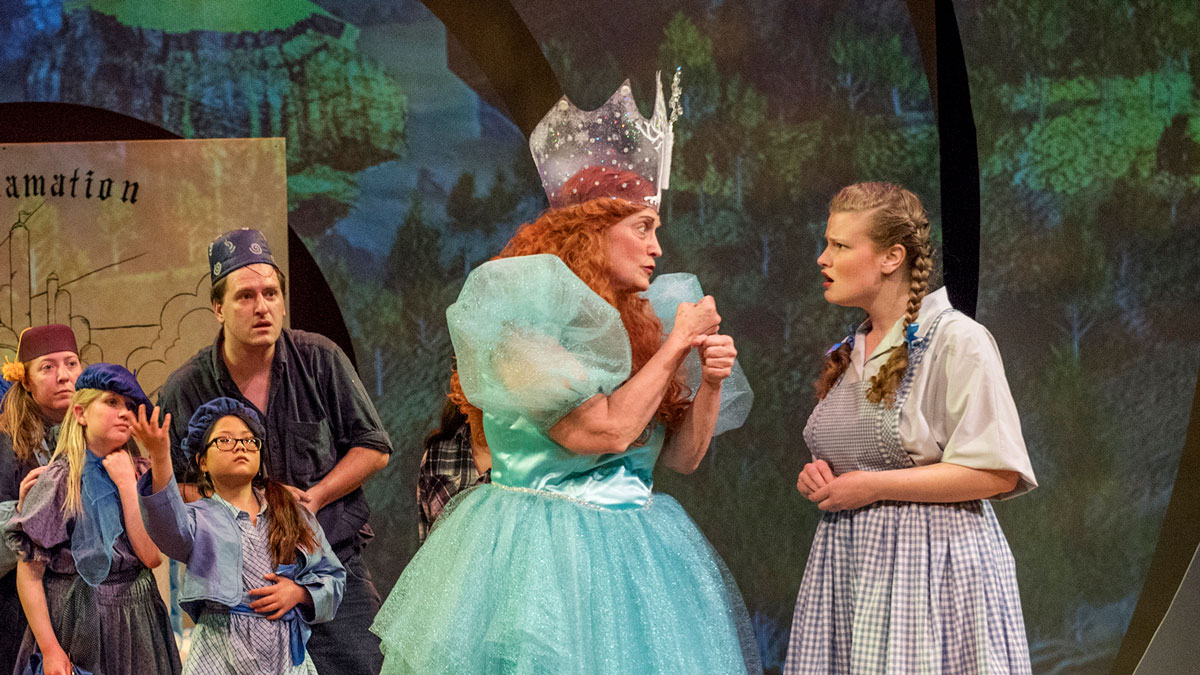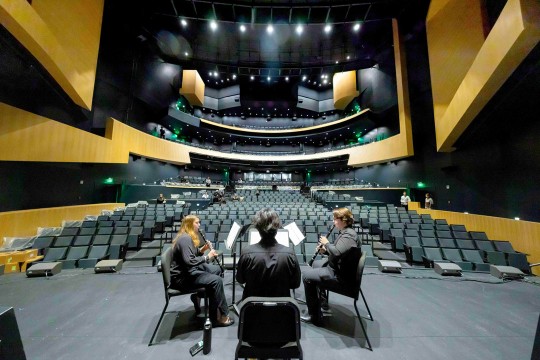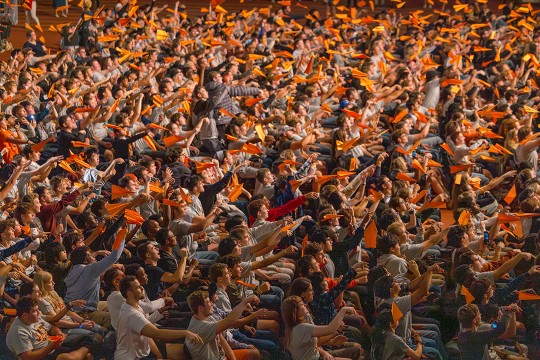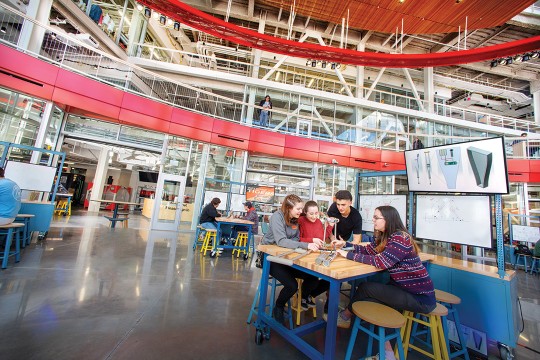Performing Arts Certificate

Performing Arts
Certificate
- RIT /
- Rochester Institute of Technology /
- Academics /
- Performing Arts Certificate
Take center stage with a Performing Arts Certificate. Express your artistic talents and captivate audiences.
Overview for Performing Arts Certificate
The performing arts certificate program offers deaf and hard-of-hearing students the opportunity to develop knowledge of standard theatrical operating procedures as well as principles and practices of theater accessibility for deaf people. Students completing this certificate often go on to work in professional and community theater. The certificate also provides a solid foundation for those who wish to pursue further education in the performing arts. The certificate is offered to students enrolled in AOS and AAS degree programs at NTID. It is not a stand-alone certificate. Students must take three 3-credit courses from the NTID Department of Performing Arts and at least one credit of Theatre Practicum (PRFN 218) to meet the certificate requirements.
Curriculum for 2025-2026 for Performing Arts Certificate
Current Students: See Curriculum Requirements
Admissions and Financial Aid
For requirements to apply, please email the program contact or inquire with your academic advisor.
Accreditation
Related News
-
November 7, 2025

Music Performance Theater passes first acoustic test
Five months before the first audience is expected in RIT’s new Music Performance Theater, a string quartet from the Rochester Philharmonic Orchestra and students from the RIT Philharmonic Orchestra were the first to take the stage to help conduct acoustic testing.
-
August 21, 2025

Newest RIT Tigers encouraged to aim high and be themselves
RIT’s newest Tigers were formally welcomed Thursday with cheers, advice, and challenges to dream big.
-
May 1, 2024

What’s being made in the SHED
Making at RIT has hit a new level now that several makerspaces in the Student Hall for Exploration and Development (SHED) have opened to provide students access to equipment and support for classwork, club advancement, and personal projects.
Contact
- Erin Auble
- Interim Department Chair
- National Technical Institute for the Deaf
- emtnpa@rit.edu
NTID Department for Performing Arts













